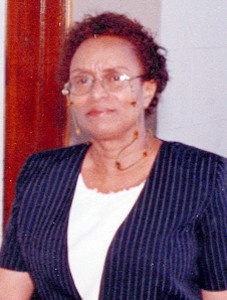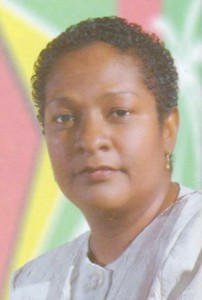By Miranda La Rose
After a seven-year wait, the National Assembly yesterday unanimously approved two motions which now pave the way for the setting up of the children’s and women and gender equality commissions.
The sitting of the National Assembly got underway 25 minutes after the scheduled start due to the lack of a quorum and then the absence of a majority of voting members. The motions required two-thirds support for passage. PPP/C MP Gail Teixeira, who chairs the Committee on Appointments, moved both motions which were seconded by AFC MP Sheila Holder.
For the establishment of the Rights of the Child Commission, the National Assembly approved the eight categories of representatives on the commission; approved the list of entities to nominate members of the commission; and approved the consensual mechanism outlined in the second schedule attached to the motion. All of the 45 MPs present in the House at the time voted in favour of the motion.
The 81 entities to be consulted for the nomination of members come from the service, religious, youth, women and ‘other’ sectors.
The consensual mechanism for the nomination by entities, mandates the Clerk of the National Assembly to write the entities inviting them to meet as a group to select their nominees and to send their representatives on an appointed date to appear before the Parliamentary Standing Committee to Appoint Members of the Commission, to present the names of their nominees for membership to the commission.
The process for the appointment would include a deadline to be set by the Clerk of the National Assembly on the advice of the Standing Committee, formal notification and other requested particulars of the nominee and a statement of support and acceptance by the entity.
The nominees should be persons who are competent to contribute to the work of the commission, committed to ensuring that the commission discharges its functions, should have earned public respect, and be of unquestionable honesty and integrity.
The process used must be demonstrated to be unbiased and transparent. Where there is a recognized umbrella organization in the list of entities for a group, the Clerk shall write to the organisation and copy his letter to each of the ‘constituent entities’ within the group.
By the time the motion on the Women and Gender Equality Commission was being debated two more MPs and arrived and they brought the number of MPs who voted in favour of the motion to 47.
Like the motion dealing with the Rights of the Child Commission, the National Assembly approved the categories and the entities to nominate members. The categories are women and their representatives, three; professional bodies, one; private sector, one; labour movement, two; TUC women’s advisory council, one; cultural/ethnic, two; regional representatives from the 10 women’s advisory committees, three; Women’s Progressive Organisation (WPO), one; and the National Congress of Women (NCW), one.
The National Assembly approved the consensual mechanism for the nomination by entities for members of the Women and Gender Equity Commission. The consensual mechanism is similar to that to be used for the nomination of members to the Rights of the Child Commission.
AFC MP Sheila Holder, who seconded both motions, noted that while it took the national stakeholders on security meeting of March 12, 2008 to push the process for the establishment of the rights commissions, they had been seven years in the making having previously failed to reach agreement.
The political parties had committed in March to the stakeholders to establish five rights commissions and the procurement commission within a 90-day period as a part of enhancing good governance as a means to ensuring a peaceful and secured national environment.
The deadline has passed without the way being cleared for the other four.
In parliament, Holder reiterated her objection to the guaranteed places given to the WPO and NCW based on their existence.
PNCR-1G MPs Deborah Backer and Amna Ally noted the time and effort invested to reach unanimity on the mechanism for the establishment of the commissions.
Describing their efforts as “somewhat a feat”, Backer nevertheless said that they still have a far way to go with mechanisms for the establishment of the Indigenous People’s Commission (IPC) and the reconstitution of the Ethnic Relations Commission (ERC). Once all the rights commissions have been established the Human Rights Commission will be constituted.
Both Ally and Backer noted that in the appointment of the members of the commission, the government has to now move to provide funding for the operationalising of a secretariat with support staff for the commissions.
In moving the two motions, Teixeira noted the unanimity arrived at in the appointive committee among the representatives of the government on the mechanisms for the establishment of the commissions. Like the others who spoke, she noted that they were in uncharted waters and it took a lot of political will to arrive at the current stage.
She said that the government was committed to the operationalising of a secretariat for the commissions and that there were mechanisms to be approved by parliament for two more commissions to be established.
However, she said that the process of operationalising would be one of moving from stage to stage.
Apart from the existence of the WPO and the NCW, Teixeira said that their guaranteed place was also based on the large numbers they represent countrywide.









